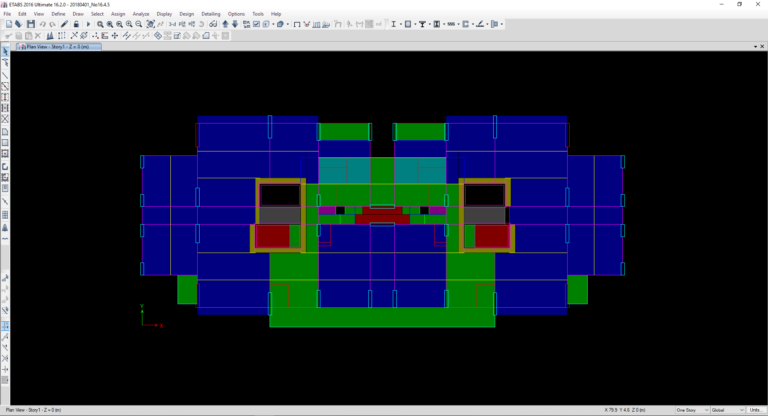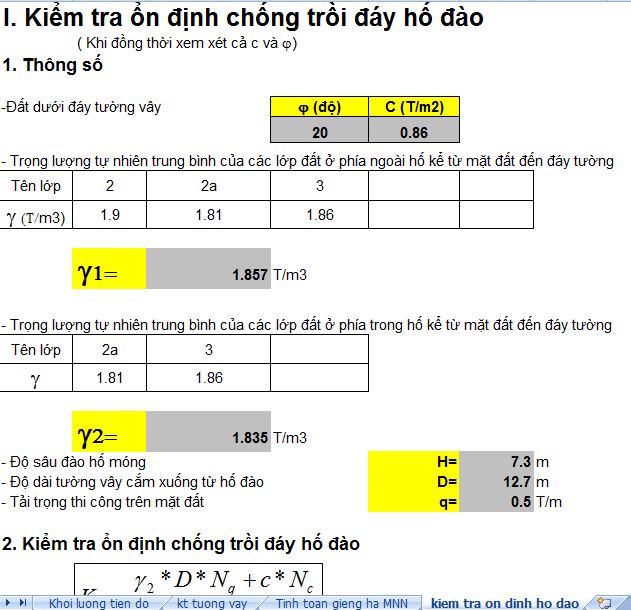Topic Who qualifies for indiana refund: If you filed an Indiana resident tax return for the 2020 tax year by December 31, 2021, you may be eligible for an Automatic Taxpayer Refund of $125. This refund is issued by the Indiana Department of Revenue, usually through direct deposit. Similarly, if you filed an Indiana Full-Year Resident Individual Income Tax Return (Form IT-40) or Indiana Part-Year or Full-Year Nonresident Individual Income Tax Return (Form IT-40PNR), you may qualify for the refund. If you received Social Security benefits in 2022 and were not claimed as a dependent, you may be eligible for a larger refund of $200.
Table of Content
- Who qualifies for the Indiana refund?
- What is the Indiana refund?
- When and how can one file an Indiana resident tax return?
- YOUTUBE: Indiana Automatic Taxpayer Refund: State set to distribute checks by early October
- What is the deadline for filing an Indiana resident tax return to qualify for the refund?
- What amount is eligible for the Indiana refund?
- Can non-residents also qualify for the Indiana refund?
- Are there any specific forms that need to be filed to claim the refund?
- Are there any criteria other than filing a resident tax return for qualifying for the Indiana refund?
- Can individuals who received Social Security benefits in the previous year qualify for the Indiana refund?
- Can individuals who were claimed as dependents on someone else\'s tax return still qualify for the refund?
Who qualifies for the Indiana refund?
To qualify for the Indiana refund, you generally need to meet certain criteria set by the Indiana Department of Revenue (DOR). Here is a step-by-step explanation:
1. Determine your filing status: You must have filed an Indiana resident tax return for the applicable tax year. This means you should have filed either a Form IT-40 (Indiana Full-Year Resident Individual Income Tax Return) or a Form IT-40PNR (Indiana Part-Year or Full-Year Nonresident Individual Income Tax Return) depending on your residency status.
2. File your tax return by the deadline: You must have filed your Indiana tax return for the specific tax year within the deadline set by the DOR. For example, for the 2020 tax year, you needed to file your return by December 31, 2021.
3. Meet specific eligibility requirements: The exact eligibility requirements for the Indiana refund may vary depending on the specific refund program or initiative in place. For example, the Automatic Taxpayer Refund (ATR) program in Indiana may have different eligibility criteria than other refund programs. You should review the specific guidelines provided by the DOR to determine if you qualify.
4. Note any additional criteria: In some cases, additional criteria may be mentioned, such as receiving Social Security benefits in a specific calendar year or not being claimed as a dependent by someone else. These additional requirements are specific to certain refund programs and may not apply to all individuals.
It is important to review the official guidelines provided by the Indiana Department of Revenue or consult with a tax professional to determine if you meet all the qualifications for the Indiana refund.
READ MORE:
What is the Indiana refund?
The Indiana refund refers to the Automatic Taxpayer Refund (ATR) program implemented by the state of Indiana. The ATR is a one-time refund issued to eligible taxpayers in Indiana. It was introduced as a result of an unexpected surplus in the state\'s tax revenue.
To qualify for the Indiana refund, there are certain criteria that must be met.
1. Filing Requirement: The individual must have filed an Indiana resident tax return for the applicable tax year. For example, for the 2020 tax year, the return must have been filed by December 31, 2021.
2. Residency Status: The individual must be a resident of Indiana for the relevant tax year. Non-residents or part-year residents may not be eligible.
3. Income Limit: There is no specific income limit mentioned in the search results. However, it is always a good idea to check with the Indiana Department of Revenue or consult a tax professional for specific income requirements.
4. Type of Tax Return: The eligible tax form for the Indiana refund may vary. The search results mention the Indiana Full-Year Resident Individual Income Tax Return (Form IT-40) and the Indiana Part-Year or Nonresident Individual Income Tax Return (Form IT-40PNR) as qualifying forms. The specific form to be used can depend upon an individual\'s residency status.
5. Social Security Benefits: In some cases, to qualify for the ATR, the taxpayer must have received Social Security benefits in the relevant tax year. This requirement may be valid for certain individuals and not for others, so it is essential to review the specific criteria outlined by the Indiana Department of Revenue.
It is important to note that the search results mentioned the specific refund amounts of $125 and $200, but these amounts may vary depending on the tax year and the state\'s fiscal policies. It is always advisable to consult official sources such as the Indiana Department of Revenue or a tax professional for the most accurate and up-to-date information regarding eligibility and refund amounts.
When and how can one file an Indiana resident tax return?
To file an Indiana resident tax return, you typically need to follow these steps:
1. Determine your residency status: You must be considered a resident of Indiana for tax purposes. Generally, you are considered a resident if Indiana is your permanent home or if you spent more than 183 days in the state during the tax year.
2. Gather your tax documents: Collect all the necessary tax documents such as W-2 forms, 1099 forms, and any other relevant income or deduction documentation.
3. Choose a filing method: You have the option to file your Indiana resident tax return electronically or by mail. Filing electronically is generally faster and more efficient.
4. Complete the tax return: Use the appropriate form for your filing status - Form IT-40 for full-year residents or Form IT-40PNR for part-year residents. Fill out the form accurately, reporting your income, deductions, and credits.
5. Double-check your return: Review your completed tax return carefully to ensure accuracy and verify that you\'ve claimed all applicable deductions and credits.
6. Submit your return: If filing electronically, you can submit your return through the Indiana Department of Revenue\'s online portal or use tax software approved for Indiana state filing. If filing by mail, include a copy of your federal tax return and any applicable schedules, and mail it to the designated address provided on the tax form.
7. Pay any taxes owed or claim a refund: If you owe taxes, make sure to submit payment along with your tax return. If you are due a refund, you can choose to have it directly deposited into your bank account or receive a paper check in the mail.
The specific deadlines and instructions may vary from year to year, so it\'s important to consult the Indiana Department of Revenue\'s website or contact them directly for the most up-to-date information on filing an Indiana resident tax return.

Indiana Automatic Taxpayer Refund: State set to distribute checks by early October
Explore the captivating landscapes and vibrant culture of Indiana in this mesmerizing video journey. From the iconic Indianapolis Motor Speedway to the picturesque Brown County State Park, let yourself be enchanted by the charm of this hidden gem in the heart of America. Don\'t miss out on discovering the wonders of Indiana!
What is the deadline for filing an Indiana resident tax return to qualify for the refund?
According to the Google search results, the deadline for filing an Indiana resident tax return to qualify for the refund is December 31, 2021. This means that individuals who filed an Indiana resident tax return for the 2020 tax year by this date would qualify for the refund. It is important to note that the specific details about the refund and eligibility criteria may vary, so it is recommended to refer to the official sources or consult with a tax professional for accurate and up-to-date information.
What amount is eligible for the Indiana refund?
Based on the information provided in the Google search results, it appears that there are different refund amounts available in Indiana, depending on the specific circumstances of the taxpayer.
For the $125 Automatic Taxpayer Refund (ATR), the eligibility criteria include filing an Indiana resident tax return for the 2020 tax year by December 31, 2021. It is unclear from the search results whether there are any additional requirements for this refund.
For the $200 Automatic Taxpayer Refund, the taxpayer must have received Social Security benefits in the calendar year 2022 and must not be claimed as a dependent by someone else. It is not specified whether there are any additional requirements for this refund.
Without further information, it is not possible to determine the exact amount that is eligible for the Indiana refund. The specific refund amounts and eligibility criteria may vary depending on the taxpayer\'s circumstances and the specific refund program being referred to.
_HOOK_
Can non-residents also qualify for the Indiana refund?
No, non-residents do not qualify for the Indiana refund. The Indiana refund, also known as the Automatic Taxpayer Refund (ATR), is only available for individuals who filed an Indiana resident tax return for the specific tax year. Non-residents who did not file an Indiana resident tax return are not eligible for the refund. The eligibility criteria for the ATR include filing an Indiana Full-Year Resident Individual Income Tax Return (Form IT-40) or Form IT-40PNR for those with a part-year residency status. Non-residents who did not meet these requirements are not eligible for the refund.
Indiana lawmakers approve expanded tax refund eligibility
Delve into the world of legislation and governance with this thought-provoking video about Indiana\'s lawmakers. Gain insight into their tireless efforts to shape policies that impact our lives and learn about the inspiring stories behind their journeys. Get ready to be inspired by the dedication and commitment of Indiana\'s lawmakers!
When will I receive my $125 refund from Indiana?
Discover the secrets to maximizing your tax refund with this informative and eye-opening video. Take a deep dive into the world of tax deductions, credits, and strategies that can help you save more money than ever before. Gain valuable tips and tricks that will leave you feeling empowered and ready to take control of your finances!
Are there any specific forms that need to be filed to claim the refund?
Yes, there are specific forms that need to be filed to claim the refund in Indiana. The forms that need to be filed depend on your residency status and income level. Here are the steps to claim a refund in Indiana:
1. Determine your residency status: If you are a full-year resident of Indiana, you will need to file Form IT-40, which is the Indiana Full-Year Resident Individual Income Tax Return. If you are a part-year or nonresident, you will need to file a different form, such as Form IT-40PNR or Form IT-40RNR.
2. Gather your income information: Before filling out the appropriate form, gather all the necessary income information, including your W-2 forms, 1099 forms, and any other income documentation. This information will be required to report your income accurately on the tax return form.
3. Complete the appropriate form: Fill out the form that corresponds to your residency status and income level. Provide all the required information, including personal details, income, deductions, and credits. Be sure to double-check your entries for accuracy.
4. Calculate your refund: Once you have completed the form, calculate your refund or the amount you owe. This will depend on factors such as your total income, deductions, and credits.
5. Submit the form: After completing the appropriate form and calculating your refund, submit it to the Indiana Department of Revenue. You can file electronically through the Indiana Department of Revenue\'s website or mail a paper copy to the designated address.
6. Follow up on your refund: After filing your tax return, you can track the status of your refund on the Indiana Department of Revenue\'s website. They will provide updates on when you can expect to receive your refund.
It\'s important to note that these steps are general guidelines and may vary depending on individual circumstances. If you have specific questions or need further assistance, it\'s recommended to consult with a tax professional or visit the official Indiana Department of Revenue website for more detailed information.

Are there any criteria other than filing a resident tax return for qualifying for the Indiana refund?
No, according to the Google search results provided, the main criteria for qualifying for the Indiana refund is filing a resident tax return for the applicable tax year. However, it\'s important to note that the search results might not encompass all possible scenarios or updates. It\'s always a good idea to consult official sources such as the Indiana Department of Revenue or a tax professional for the most accurate and up-to-date information on qualifying for the Indiana refund.
Can individuals who received Social Security benefits in the previous year qualify for the Indiana refund?
Yes, individuals who received Social Security benefits in the previous year may qualify for the Indiana refund. To qualify for the $200 Automatic Taxpayer Refund, a taxpayer must have received Social Security benefits in the calendar year and must not be claimed as a dependent by someone else. It is important to note that this information is based on the search results provided and may be subject to change. To ensure the accuracy of the eligibility criteria, it is recommended to consult the official guidelines provided by the Indiana Department of Revenue or speak with a tax professional.

Can individuals who were claimed as dependents on someone else\'s tax return still qualify for the refund?
No, individuals who were claimed as dependents on someone else\'s tax return are not eligible to qualify for the Indiana refund. The eligibility criteria for the refund typically require individuals to have filed an Indiana resident tax return for the specific tax year. Being claimed as a dependent on someone else\'s tax return means that the individual is not considered the primary taxpayer and therefore does not meet the eligibility requirements for the refund.
_HOOK_
READ MORE:
Indiana officials announce $125 refund to taxpayers from surplus
Calling all taxpayers! This engaging video is a must-watch for anyone wanting to unravel the mysteries of the tax system. From demystifying complex terms to providing valuable insights on maximizing deductions, this informative content will equip you with practical knowledge to navigate the world of taxes with ease. Don\'t miss out on this opportunity to become a savvy taxpayer!










